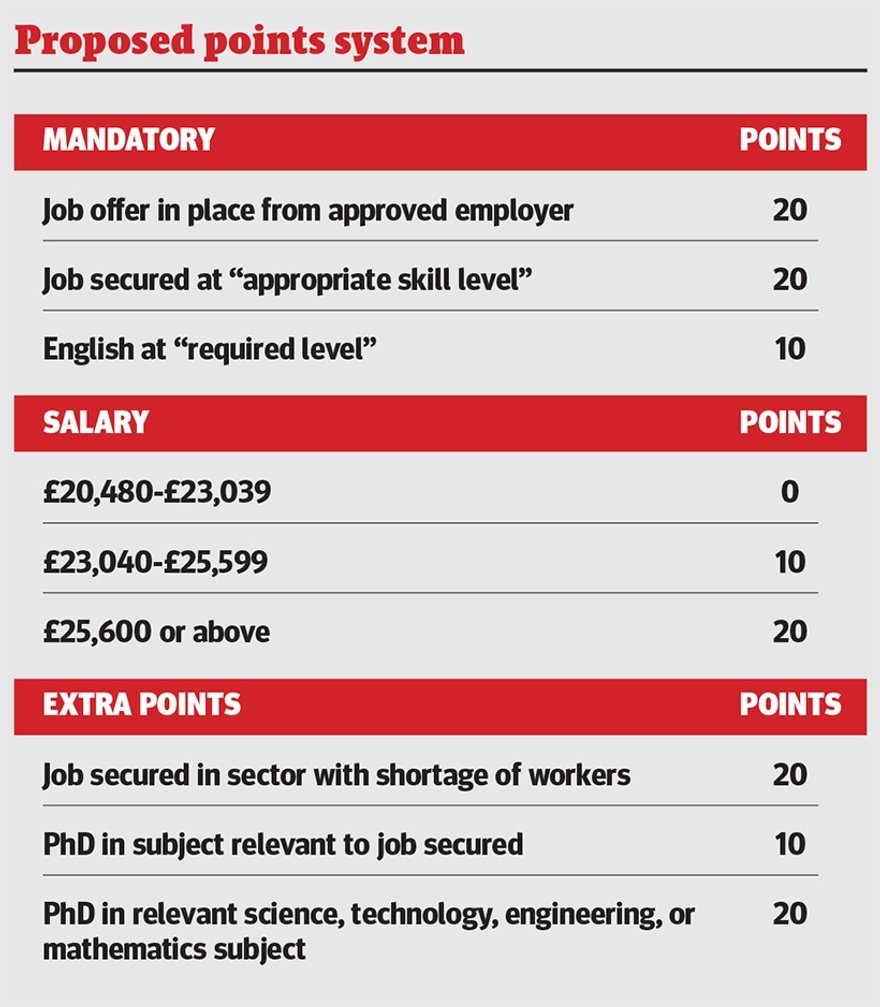Immigration policy fears as data reveals 42% of workforce from EU on average salary of £18,400
Research showing that 42% of the hospitality workforce comes from the EU and earns an equivalent average full-time salary of £18,400 (£8.85 an hour) sets out the dramatic impact the government's new immigration policy will have in the sector.
As the Brexit transition period comes to an end, in less than 11 months, prospective workers will need a job offer from a sponsored employer with a minimum salary of £25,600 – although there is a suggestion this could drop to £20,480 in industries with staff shortages if other conditions are met – as well as meeting a minimum English language standard.
Even if these requirements are met, potential employees will need to tot up 70 points in a system that prioritises high salaries and qualifications, with the Home Office estimating that 70% of the UK's current EU workforce would not meet the new requirements. The changes have been described as a 'hammerblow' to the industry with operators saying they are 'shocked and saddened'.
Today's figures, released by leading global software provider Fourth, demonstrate the impact the changes could have on the hospitality workforce, a further 11% of which comes from the rest of the world.
An analysis of the hourly rates of tens of thousands of workers across 4,000 hospitality businesses suggests restaurants will be hardest hit. Fourth found that 75% of back-of-house staff and 60% of front-of-house teams are from overseas with average wages of £9.17 and £8.47, respectively.
The QSR sector is made up of 61% overseas workers and pays an average hourly wage of £9.46.
Pubs and hotels are moderately less dependent on overseas workers, according to the data, with a 33% and 40% reliance respectively.
The difficulties set to be faced are likely to be made worse by the transient nature of the hospitality workforce, with the average employee remaining in the industry for 14 months.
Mike Shipley, vice president of analytics at Fourth, said: "This move will undoubtedly add further fuel to the fire in the industry's ongoing fight to attract and retain the best employees.
"Furthermore, the new legislation doesn't take into consideration the specific nuances of the hospitality industry, such as tips, which are not included in the calculations for the new thresholds.
"The announcement comes after the government announced further increases to the NLW in April, which is a double blow for the industry. The already extensive pressure on wages will be further exacerbated by a shrinking pool of workers as the tap of new labour from Europe is turned off, presenting a mountain of rising labour costs for operators to climb.
"To combat this era of unprecedented wage inflation, it's absolutely imperative that operators gain a true understanding of the current make up of their workforce, as well as looking at ways in which they can harness the power of technology and data to be more economical and efficient with how they deploy labour."
Legal advice: Roger Gherson, partner, and Sasha Lal, consultant and trainee solicitor at Gherson Solicitors
It is clear to see that many workers in the hospitality sector will not qualify. The government would be well advised to reconsider the threshold here before the industry falls to its knees. Employers will need to provide sponsorship for any foreign national which can be a long and expensive process; and still not guarantee a stringent workforce. The best advice at this stage would be to lobby the government to think again and be prepared ahead of the new rules coming in to force next year."






